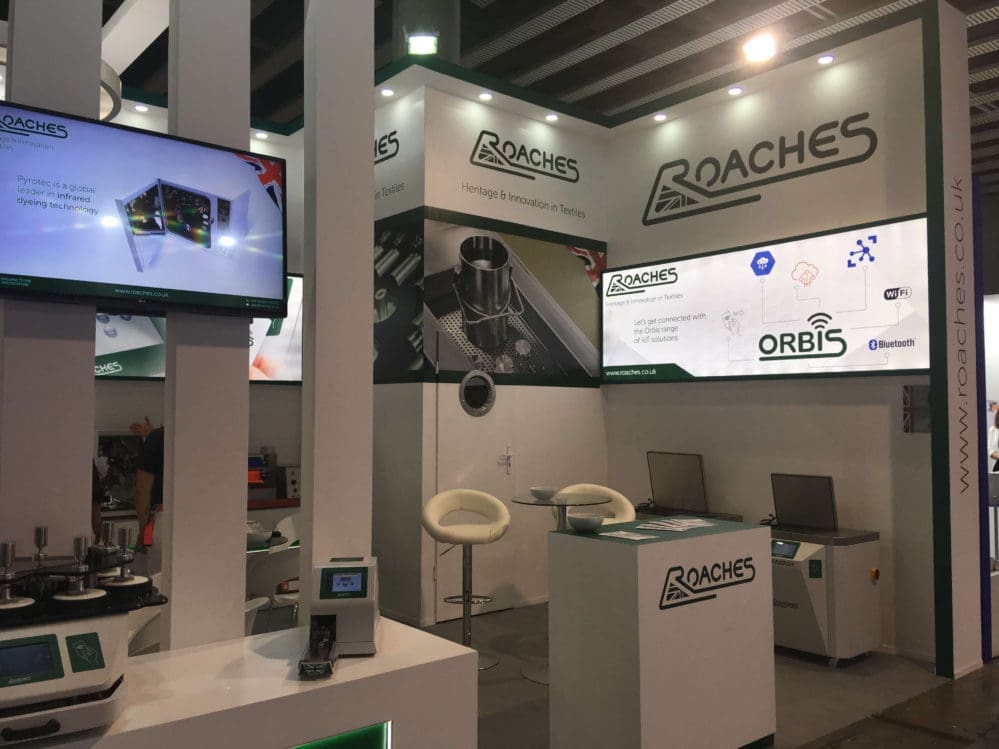Roaches International, a UK based designer and manufacturer of textile testing instruments and laboratory dyeing machines, is exhibiting its new software called Orbis for the first time at ITMA.
The Roaches Orbis offers IoT solutions for textile testing machines in its range. This allows all of the company’s machines to link via WiFi to either a tablet based app or computer.
“Orbis is a control software. It tells the end user who did the test, when it was done, what they did and what the result is,” says David Buxton, sales director at Roaches.
“The key thing is that it is transparent. People are loving the idea of being able to prove that the test has been done.”
The data can then be stored on cloud based systems or simply emailed to the relevant person. This provides long term evidence which can also include a photo to provide further proof that tests have been carried out.
Additionally, the machines are operated with an RFID access card.
“So, you have to be a trained technician to be able to operate the machine. For an auditor, they can see the visual representation of who has done the test etc,” adds Buxton.
He adds that the hardest thing about developing Orbis was making a commercial product that is small enough to fit onto existing machines. “We had to make it so that the price was still justifiable,” he says.
The Orbis software will be available on machines in 12 weeks. They are ideal for mills, third party testing service providers and brands wanting to do some quick in-house tests.
Roaches is also exhibiting a range of other machines, such as the Martindale abrasion and pilling tester, Durawash for high volume repeat washing tests and Washtec, the new and improved colour fastness tester.
Roaches International is a trading name of Advanced Dyeing Solutions Ltd and is exhibiting at ITMA Barcelona in UL, Stand D204.

